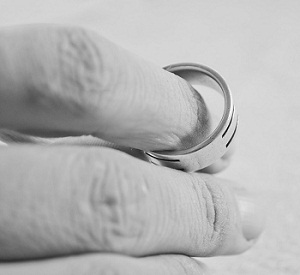Divorce Among the Over-50’s is on the Rise
Divorce Among the Over-50’s is on the Rise

Divorce rates are at their lowest for 49 years, according to the Office for National Statistics (ONS). However, among older people, more marriages are ending in divorce.
The ONS compared figures from 2013 with those from 10 years previously, and discovered that divorce had decreased in virtually all age groups except the over-50s.
Divorce among people over 60 in England and Wales has been steadily increasing for many years, running against the downward trend of marriage break-up nationally. Divorce in this age group tripled to 1.3m in the two decades up to 2013, according to the ONS.
New pension freedom rules trigger a surge of “silver splitter” divorces
The rush to divorce among couples around retirement age may be a consequence of Chancellor George Osborne’s decision to hand over-55s the freedom to cash in their pension pots and take control of lifetime savings. Pension freedom could be encouraging some older couples to divide family assets without selling the family home.
These so-called “silver splitters” have had the opportunity to make pensions contributions over the longest period, when there existed a more incentivised tax regime and greater investment returns. As a result, their pension pots will often be sizeable and one of their most valuable assets.
These pension pots will therefore play an important part in any divorce settlement, not only because of their monetary worth but also because a court has power to transfer the pension pot between parties on divorce.
In most divorce cases, the matrimonial home is sold to fund the purchase of the two new residences that are usually required. The Chancellor’s reforms mean that the pension fund can now be used to provide capital to buy a second home, thereby avoiding the disposal of the family home.
Parents often want to pass on money to children on divorce rather than to their former spouse: another advantage of the reforms is that new strategies can be developed to use the pension pots to provide tax-beneficial inheritances to children.
Older people have more assets
Older people typically have more assets and more complicated savings and property portfolios to consider – so divorce can be a particularly involved process.
Independent financial advice is necessary to ensure that division of retirement income is fair. There may be savings and investments maturing over the next few years, so all financial holdings should be examined to ensure equitable division when they do.
Other policies including healthcare, insurance and death benefits should also be listed and understood before divorce is completed, as they may have to be cancelled, cashed in or reorganised.
Parties should give full disclosure of all assets and financial resources. Everything which is owned, whether jointly or singly, should be listed, even if one considers oneself the ‘wronged party’.
Shared possessions can become a battleground in divorce proceedings – and among older people, individual items might have a particularly high sentimental value, with the potential to generate great conflict. The future of family pets can also spark disagreement.
A ‘non-conflict’ resolution is best
The emotional impact of a divorce is considerable – even when the process is quick and amicable.
Peter Jones, former head of Resolution, the arbitration service which seeks a constructive, non-confrontational approach to divorce, says that it is vital not to make things even worse with combative and aggressive litigation – which can also increase expense.
More over-60s tying the knot again
Research by the BBC into the dating habits of the over-55s indicates that dating websites and apps are increasing the romantic opportunities for those searching for love later in life.
The ONS said there has been a sharp increase in the over-60s tying the knot again, with the number of second-time brides and grooms increasing by 21% and 35% respectively between 2011 and 2012.
Divorce for over 50’s
If you are “silver splitter” seeking advice on divorce and dividing combined property and financial assets contact IBB’s divorce and family law experts today. Our experienced lawyers help families across Buckinghamshire and the surrounding counties. Call us today on 03456 381381 or email us at familylaw@ibblaw.co.uk.
